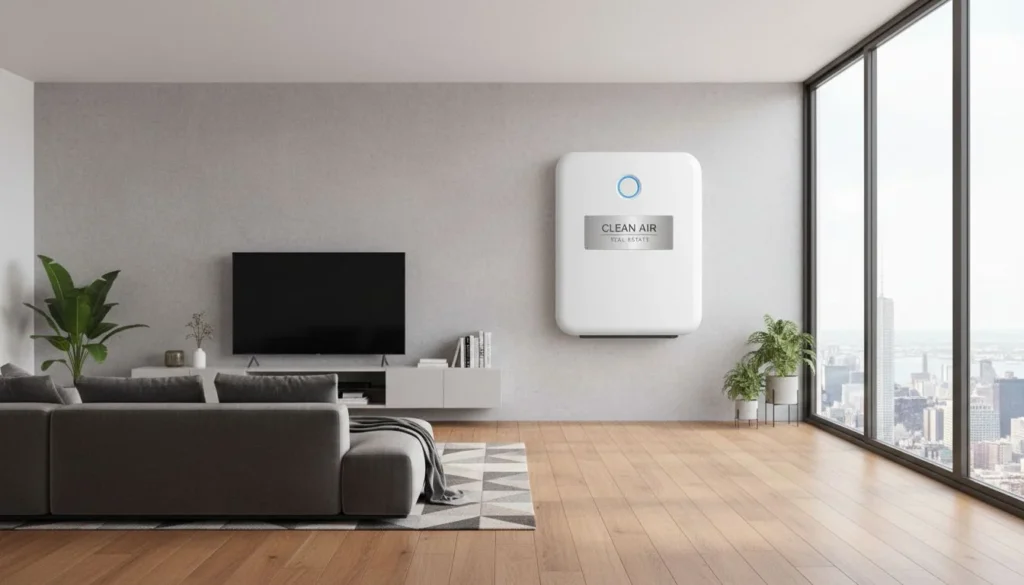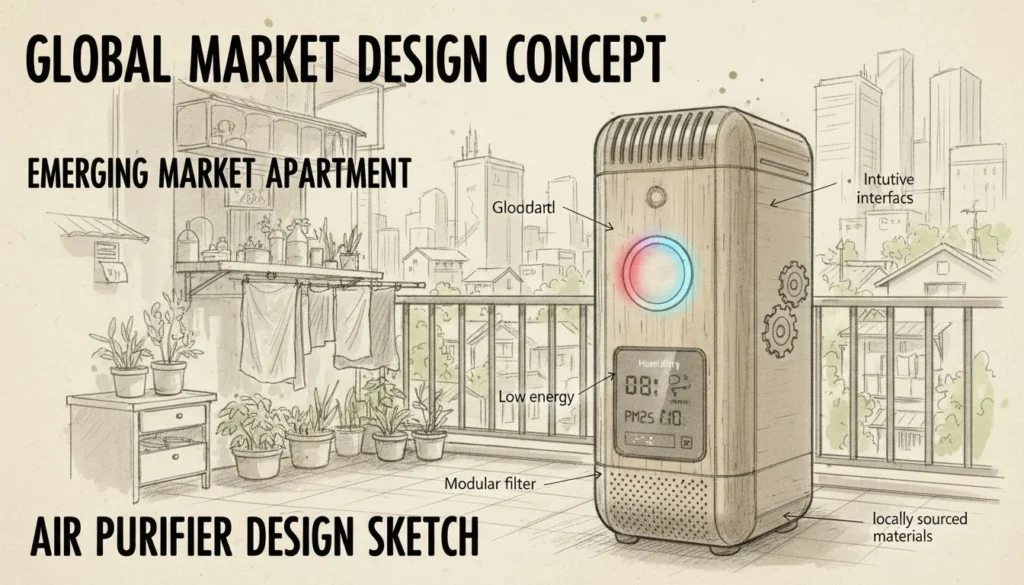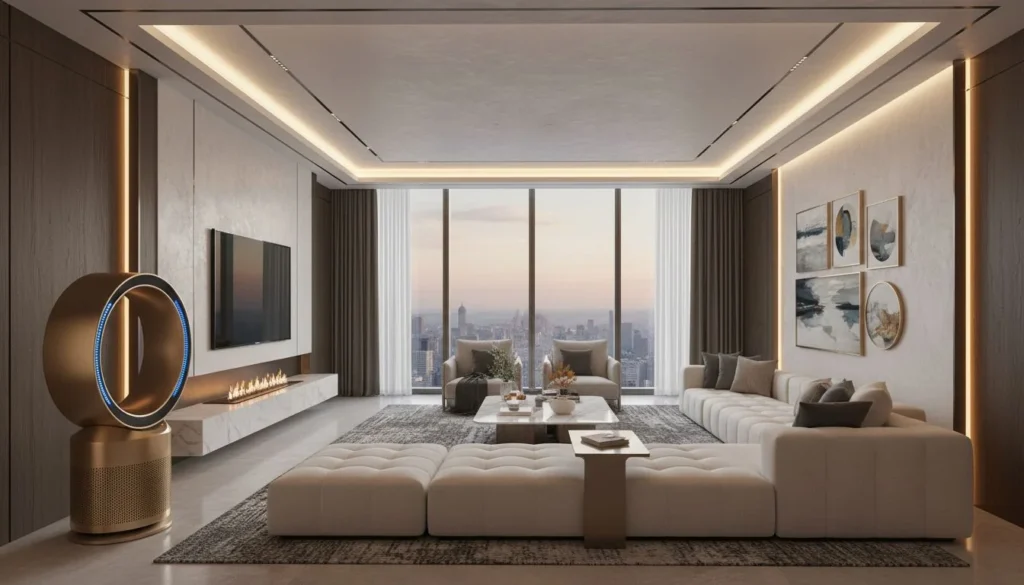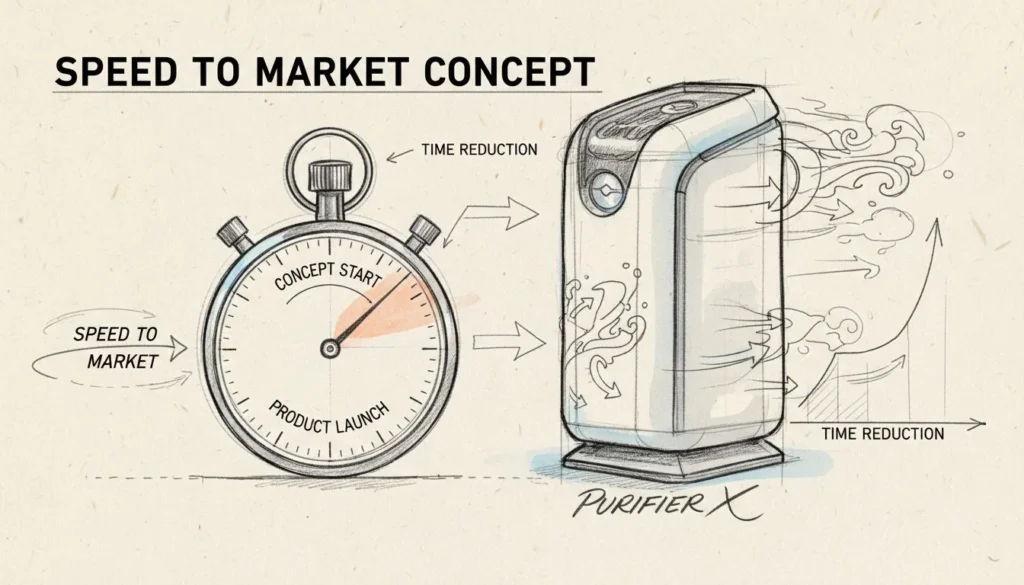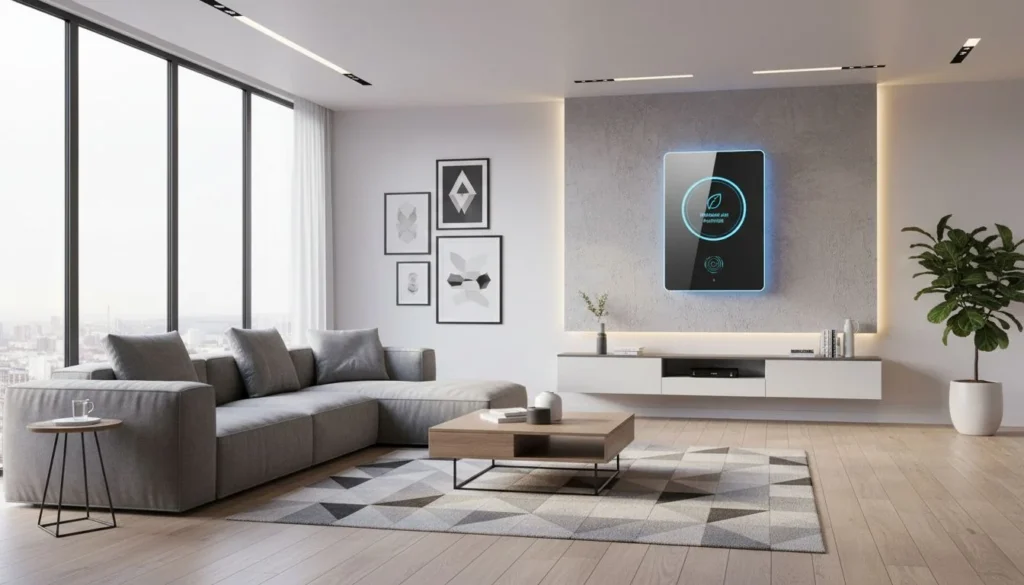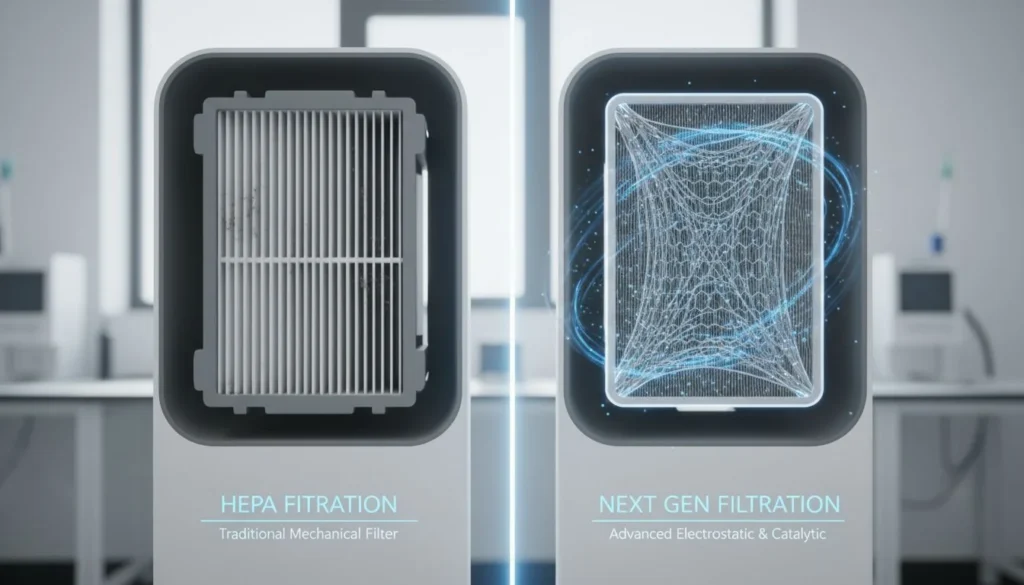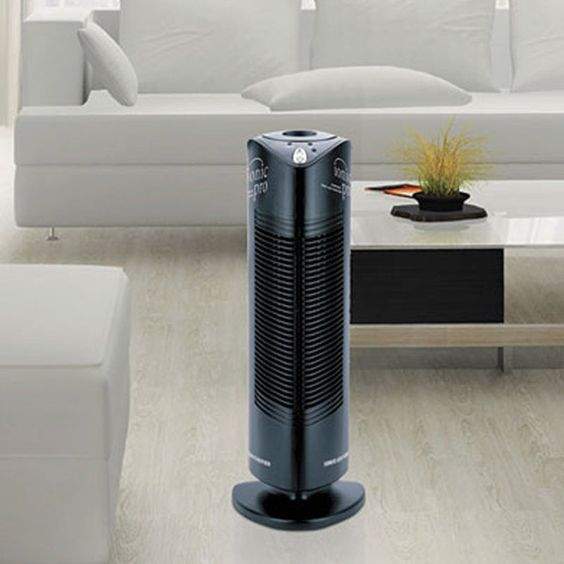
Fonte da imagem: Pinterest
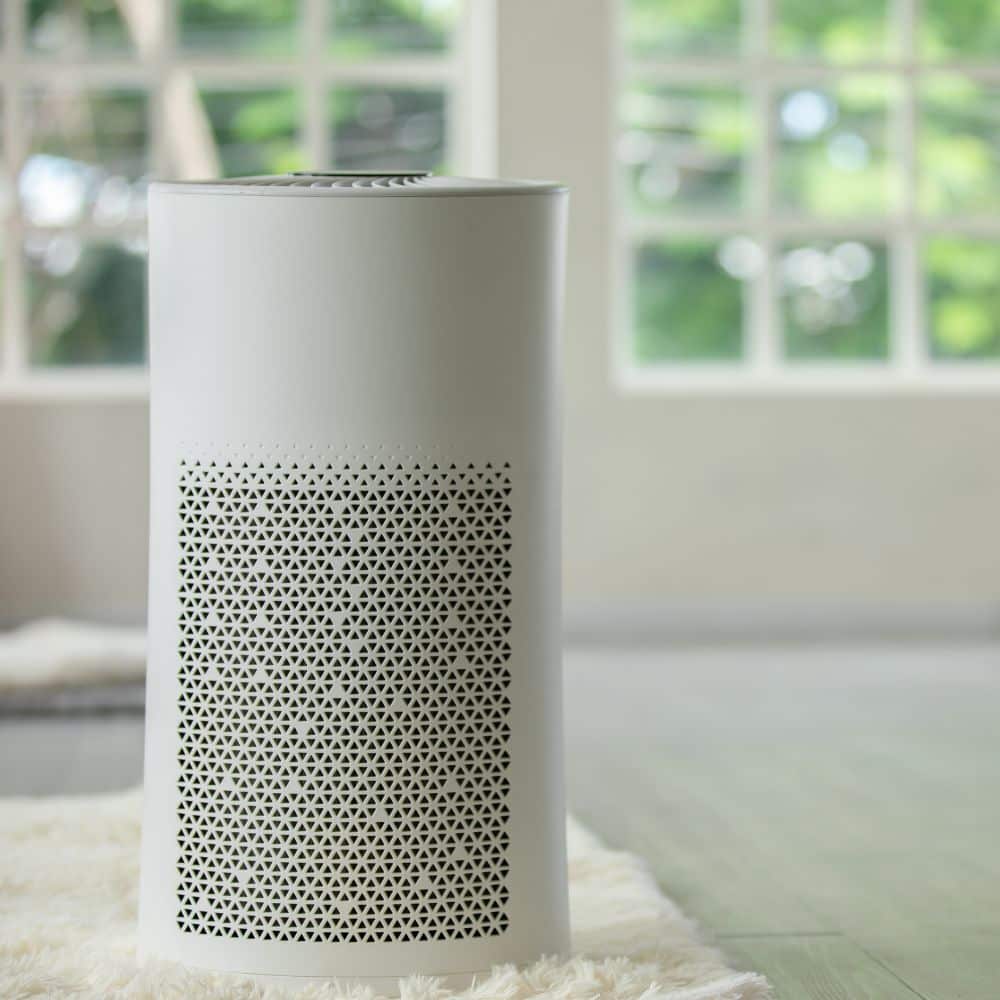
Fonte da imagem: Hisoair
Purificador de ar iónico para salas pequenas ou Purificador de ar HEPA para divisões grandesOs populares sistemas de purificação do ar, normalmente utilizados em casa e nas empresas, desempenham um papel importante na melhoria da qualidade do ar.
O purificador de ar iónico e os sistemas de purificação de ar HEPA são dois dos sistemas de purificação de ar mais populares, normalmente utilizados em casas e empresas para melhorar a qualidade do ar.
Os ionizadores são melhores do que os purificadores de ar HEPA?
Embora os ionizadores sejam comercializados como purificadores de ar, tecnicamente não o são com base num estudo sobre purificadores de ar. Diminuem, de facto, alguns compostos orgânicos voláteis no ar, mas também aumentam a presença de outros, como o etanol, a acetona e o tolueno. Além disso, a utilização em interiores pode mesmo levar à potencial formação de ozono e formaldeído.
HEPA vs iónico
O que significa iónico num purificador de ar
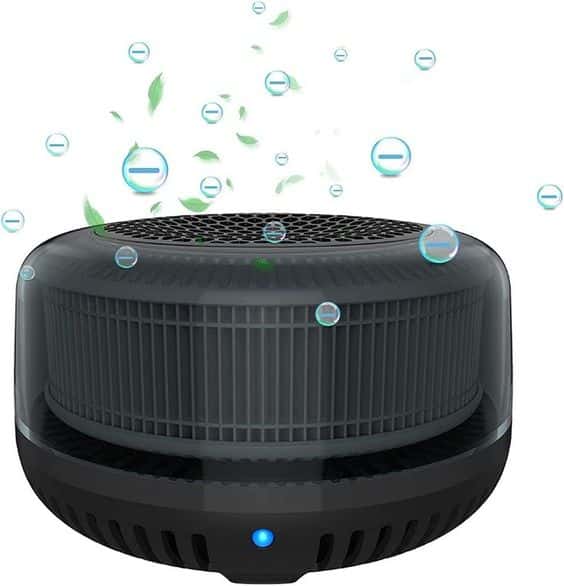
Fonte da imagem: Pinterest
De acordo com wikiOs purificadores de ar iónicos removem as impurezas do ar produzindo iões carregados que os poluentes do ar aderem para evitar que sejam transportados pelo ar.
O que significa HEPA num purificador de ar
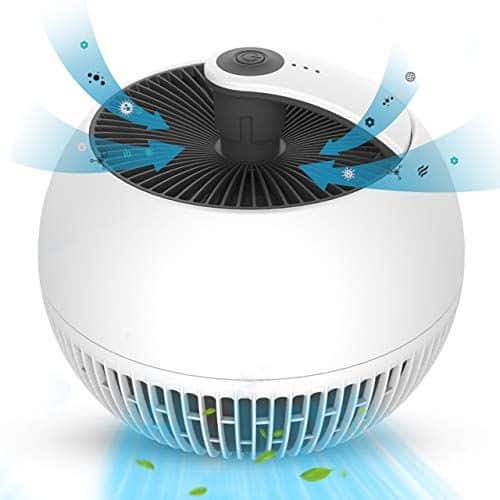
Fonte da imagem: Pinterest
HEPA por wiki é a abreviatura de high-efficiency particulate air (ar particulado de alta eficiência) e é um tipo de purificador de ar. Funciona através da captura e filtragem de pólen, alergénios, bolor, vírus, bactérias e partículas 2,5.
Filtro iónico vs filtro hepa: qual é o melhor
Prós do filtro de ar iónico
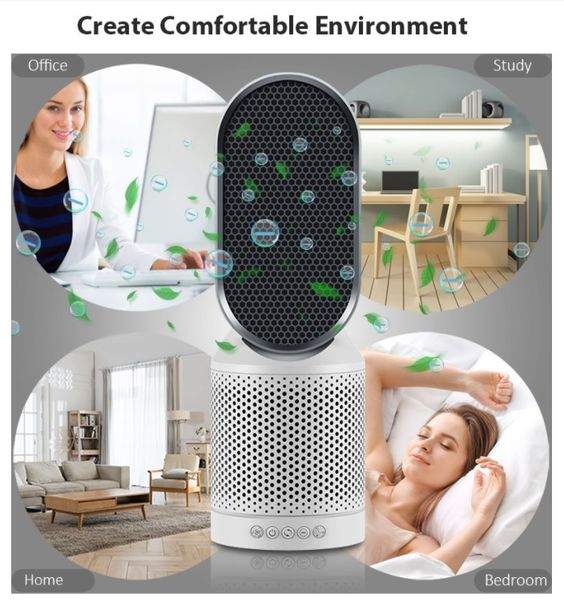
Fonte da imagem: Pinterest
Os purificadores iónicos atraem as partículas através de uma ventoinha para placas metálicas carregadas que emitem iões carregados negativamente. Estes iões ligam-se então aos poluentes do ar, fazendo com que estes se fixem nas superfícies. A sua estrutura permite que o purificador seja compacto e silencioso em comparação com outros purificadores.
Contras do filtro iónico
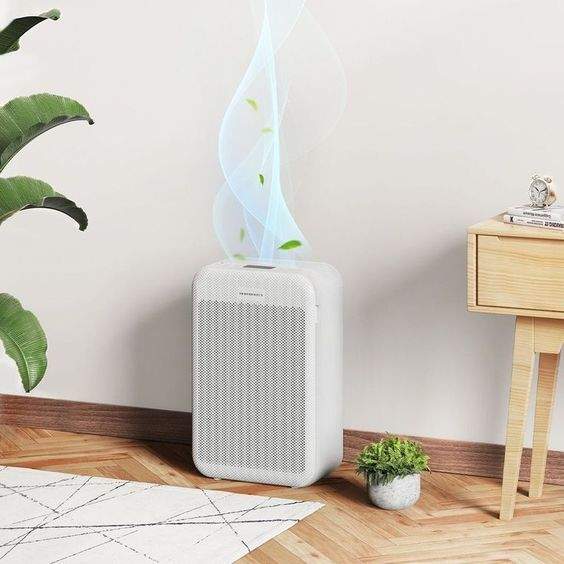
Fonte da imagem: Pinterest
A forma como o purificador de ar iónico remove as partículas de ar, permitindo que os poluentes se depositem nas superfícies através de iões de carga negativa das placas de metal, cria uma confusão nas superfícies em que as partículas se depositam e podem ainda ser respiradas.
Prós do filtro HEPA
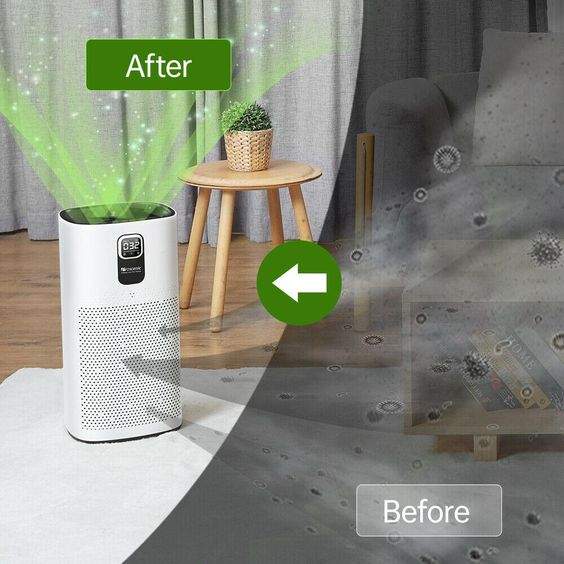
Fonte da imagem: Pinterest
Filtros HEPA são fiáveis na eliminação dos poluentes atmosféricos sem o risco para a saúde de outros subprodutos do ar. É utilizada uma ventoinha para forçar consistentemente o ar através de uma malha fina para o filtrar. A malha retém as partículas nocivas e o ar limpo é libertado de volta para a divisão.
Contras do filtro HEPA
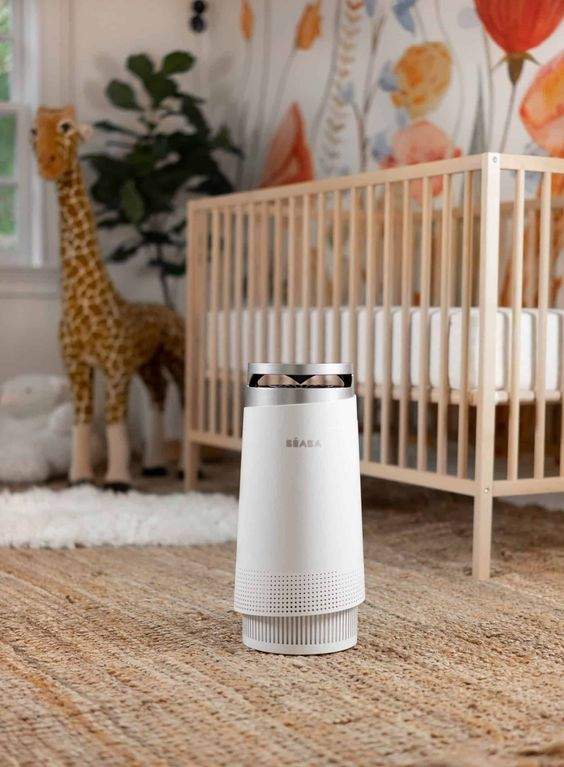
Fonte da imagem: Pinterest
Os filtros HEPA podem ser propensos ao crescimento de bolor e bactérias se a sujidade acumulada se acumular neles. No entanto, isto pode ser facilmente resolvido com a utilização de luz UVC para limpar e desinfetar o filtro HEPA e prepará-lo novamente para filtrar as partículas do ar.
Diferença entre ionizador e purificador de ar
O que fazem os ionizadores e se os purificadores de ar iónicos funcionam realmente?
Os ionizadores "purificam" o ar criando iões carregados negativamente através de placas metálicas carregadas eletronicamente. Estes iões negativos ligam-se a partículas minúsculas que se juntam e pousam nas superfícies. Pode restringir bolores, bactérias e vírus, mas pode ser ineficaz contra o pó, o pólen e o pelo. Também não inibe os odores.
Purificador de ar ionizador como funciona
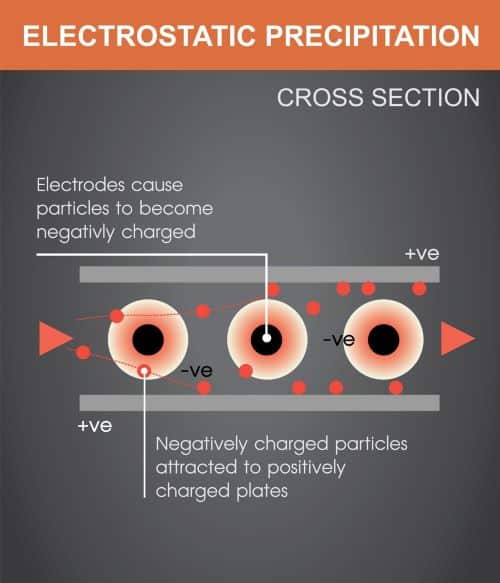
Fonte da imagem: Saúde aérea
Os purificadores de ar ionizados têm placas de metal que carregam eletronicamente os iões, fazendo com que estes fiquem carregados negativamente. Estes iões atraem partículas de ar carregadas positivamente, que são os poluentes do ar. Quando se combinam, impedem que sejam transportadas pelo ar, fazendo com que se fixem nas superfícies em vez de ficarem suspensas como contaminantes do ar.
O que é que os purificadores de ar HEPA fazem e como funcionam
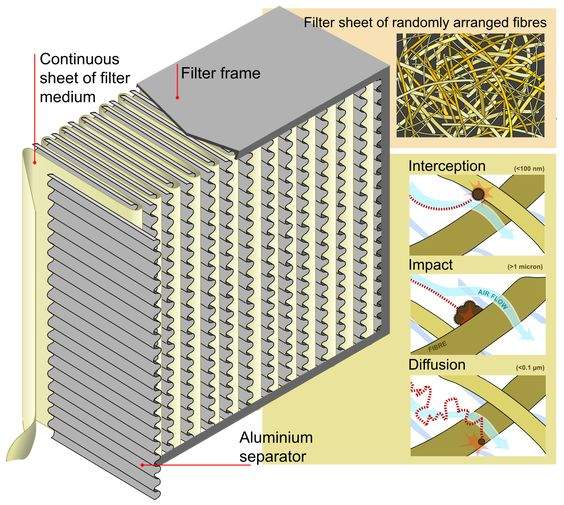
Fonte da imagem: Pinterest
Os purificadores de ar com filtro HEPA funcionam forçando o ar circundante a passar através de uma malha fina. A malha retém os poluentes atmosféricos nocivos, como o pólen, o pó, o fumo, o bolor, os pêlos de animais, os ácaros e outras partículas transportadas pelo ar. O ar passa através de diferentes camadas da malha fina e sai purificado de 99,99% de partículas.
Perigos e efeitos secundários do purificador de ar iónico
porque é que os purificadores de ar iónicos são maus
Os purificadores iónicos apresentam possíveis riscos para a saúde. Não filtram o ar tão bem como um filtro HEPA, o que permite a inalação de algumas das partículas que os purificadores de ar iónicos não conseguem remover. Estas podem causar irritação na garganta, dores no peito e outros desconfortos ou infecções respiratórias.
Os purificadores de ar ionizantes produzem ozono?
Apesar dos benefícios de purificação do ar dos purificadores de ar ionizantes, os riscos para a saúde dos purificadores de ar iónicos ainda persistem. Os subprodutos do seu método de purificação resultam em ozono, que é considerado um poluente do ar e um irritante para os pulmões. É importante ter em conta este possível efeito secundário antes de o utilizar.
os purificadores de ar iónicos causam cancro?
Não foram encontrados dados conclusivos suficientes para afirmar de forma inequívoca que os purificadores de ar iónicos causam cancro. No entanto, estudos mostram que os purificadores de ar iónicos aumentam alguns dos compostos orgânicos voláteis ou COV, que estão ligados a alguns problemas de saúde importantes, incluindo o cancro em animais e mesmo em seres humanos.
É saudável respirar ar ionizado?
Ao contrário do que é anunciado, não é de facto saudável respirar ar ionizado. Para além do cancro, a exposição ao ar ionizado pode provocar problemas respiratórios, uma vez que contém substâncias irritantes para os pulmões. Para além disso, as pessoas também correm o risco de sentir náuseas, dores de cabeça, danos nos rins, no fígado e no sistema nervoso central.
Os ionizadores eliminam os vírus?
A resposta curta é nãomas os ionizadores podem neutralizá-los. Através do seu método de purificação de libertação de iões negativos, pode purificar os vírus, atraindo-os para os iões negativos e deixando-os assentar em superfícies onde os pode limpar facilmente.
Existem efeitos secundários do purificador de ar Hepa?
O filtro HEPA é objeto de controvérsia quanto à segurança e aos possíveis efeitos secundários. No entanto, teorias foram desmentidas e os filtros HEPA continuam a ser seguros. As partículas de fibra de vidro que se temia causarem doenças pulmonares ou cancro foram cientificamente excluídas como motivo de preocupação.
purificador de ar iónico vs hepa: em resumo
Os problemas de segurança dos purificadores de ar iónicos retiram-lhe os seus maravilhosos pontos positivos. Por razões de segurança e de saúde, recomenda-se a escolha de Purificadores de ar HEPA em oposição ao purificador de ar iónico.
O melhor purificador de ar hepa
Os purificadores de ar HEPA reinam supremos entre outros purificadores de ar, e entre as muitas opções de purificadores de ar alguns fabricantes de filtros hepa são mais adequados do que outros. Austin Air Systems, Donaldson Company Inc., Daikin Industries Ltd., Hengst, Honeywell International Inc., a propósito, pode aprender onde são fabricados os purificadores de ar honeywell a apenas um clique de distância) e MANN+HUMMEL são alguns dos melhores.


